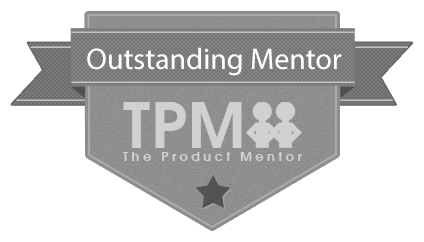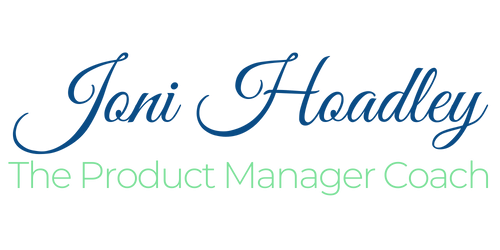Becoming a successful product manager requires a unique set of skills and expertise. It involves being able to identify customer needs, understand market trends, and work collaboratively with cross-functional teams to develop and launch successful products. However, the path to becoming a successful product manager can be challenging, and having a mentor to guide you through the process can be invaluable. In this blog post, I’ll explore the benefits of a product management mentorship program and how it can help product managers of all levels achieve their career goals.
Before you dive into the commitment of a product manager mentorship (yes, it is a commitment), I want to share five tips with you to make the most of this opportunity.
First, let’s make sure you understand what mentoring is.
What is Mentoring?
Mentoring is a process where an experienced and knowledgeable individual provides guidance, support, and advice to someone who is less experienced in a particular field or skill. A mentor serves as a role model, offering insights and practical advice to help the mentee grow and develop professionally or personally.
Mentors can provide valuable feedback, share their own experiences, and help their mentees identify and work towards their goals. Mentoring can take many forms, including one-on-one meetings, group sessions, online communication, and more. It is a collaborative and dynamic process that can have a significant impact on the mentee’s career and personal growth.
In this article, you’ll learn the following:
- Why mentoring is a learning opportunity for both mentees and mentors
- Why alignment between the mentor and mentee is important
- Why focusing on real-world challenges is helpful
- Why it pays to be mindful during a mentorship
- What the difference is between a Product Manager mentor and a Product Manager coach
I participated in a 6-month product manager mentorship program created by Jeremy Horn, aka The Product Guy, aptly called The Product Mentor. The Product Mentor is designed to pair mentors and mentees from around the world, across all industries, from start-ups to enterprise companies.
The Product Mentor is flexible, allowing the mentor and mentee to set their own goals and meet as often or as little as they like.
Mentoring was a fantastic experience for me, and I learned a lot about product management, myself, and other people.
Here are a few essential things to know about product management mentoring.
1. Mentoring is a learning opportunity for both mentees and mentors.
Although my primary goal was to help my mentee become more successful, the mentee/mentor relationship caused me to challenge myself in areas in which I could become more proficient.
Mentoring is an excellent opportunity for career growth for both the mentor and mentee.
Although the primary goal of mentoring is to help the mentee become more successful, the relationship can be beneficial for both parties.
It is important to view the mentor/mentee relationship as a two-way street so that you can both grow and develop.
2. Make sure you’re on the same page.
A big focus of The Product Mentor program is on KPIs. While many open-ended mentoring relationships may not be as structured, I found it extremely helpful to use KPIs as the basis for identifying what success looks like for my mentee.
Because we worked together to craft goals to help her achieve a successful outcome — how to become a more data-informed product manager — this gave us something concrete to discuss each week as we did our weekly check-ins.
My mentee, Merziyah, is based in New York. Since I’m based in Santa Barbara, we conducted all of our mentoring activities virtually.
Merziyah works for an agency and deals with lots of clients. As a coach and consultant, I, too, deal with lots of clients.
This common ground gave our mentoring relationship a solid foundation upon which to identify concrete goals that she could work towards.
3. Get into real-world projects and problems.
Because of the nature of her job, Merziyah had a couple of real-world projects we were able to use to put her goals and objectives into practice. This proved to be extremely valuable.
For example, during the six months we worked together, she felt there was potentially a lack of trust coming from one of her clients.
Because one of Merziyah’s KPIs was to use data to communicate more effectively, I coached her on using data to help her client understand the state of the project, thus building credibility and trust.
It’s easy to fall into the trap of speaking theoretically when you’re a mentor. Being willing and able to roll up your sleeves and provide guidance on your mentee’s fundamental challenges greatly benefits them.
4. It pays to be mindful and engaged.
Being a mentor requires a commitment…a commitment to engage with your mentee on a meaningful level. If you’re going to be a mentor, don’t just phone it in. Use that precious time to focus on what your mentee tells you and look for as many teachable moments as possible.
If you’re being mentored, you must respect your mentor’s time. Show up to your meetings promptly, and follow up with them as needed.
The bottom line is don’t be lazy.
5. What’s the difference between a Product Manager mentor and a Product Manager coach?
Coaching is frequently confused with mentoring because both have the same objectives. Coaches are almost always paid for their services instead of a mentor, who is often providing insights to their mentee for free.
According to this Forbes article, mentors are successful people who share their hard-won wisdom to provide insight and guidance. They typically function in a reactive capacity, responding to issues as they arise. Mentors may not have expertise in the mentee’s field, but they understand how to navigate the business.
On the other hand, Coaches often have expertise in the same field as the people they’re helping. They’re proactive by nature, actively participating in co-creating successful outcomes with their clients.
Is working with a mentor for you?
Working with a product mentor or coach can be extremely valuable if you’re a product manager looking to grow your career.
A good mentor or coach can help you put your goals and objectives into practice and give you feedback on your progress.
For example, a mentor or coach can help you use data to communicate more effectively.
Want to learn more?
If you’re interested in becoming a product management mentor or mentee, click here to learn more about The Product Mentor program.
Jeremy has included a lot of great content on this site, including videos of past mentor presentations. My presentation was about using metrics that matter (here’s a hint: outcome-based metrics are a must!), which you can find here.

I’d like to thank Jeremy for allowing me to be a part of this wonderful program.
As I’ve said, this was a wonderful learning experience.
Being recognized as an Outstanding Mentor for my participation in the program was the icing on the cake!
I’d also like to thank my mentee, Merziyah, for being such a great partner in this program and I wish her the best of luck as she continues to strive to become an even better product manager.
As an experienced product manager, I know firsthand the challenges and opportunities that come with this dynamic field. That’s why I’m excited to offer coaching services to other experienced product managers who are looking to take their careers to the next level.
Through personalized guidance and support, I can help you develop the skills and strategies you need to achieve your career goals. Whether you’re looking to refine your leadership skills, explore new career opportunities, or take your product development strategies to the next level, I can provide you with the insights, feedback, and practical advice you need to succeed. So if you’re an experienced product manager looking for a coach, I invite you to book a call with me today to learn more about my coaching services and how they can help you achieve your career aspirations.

